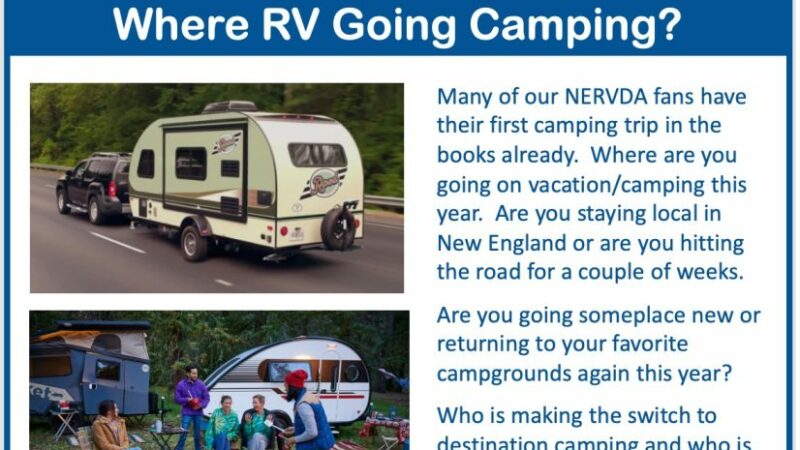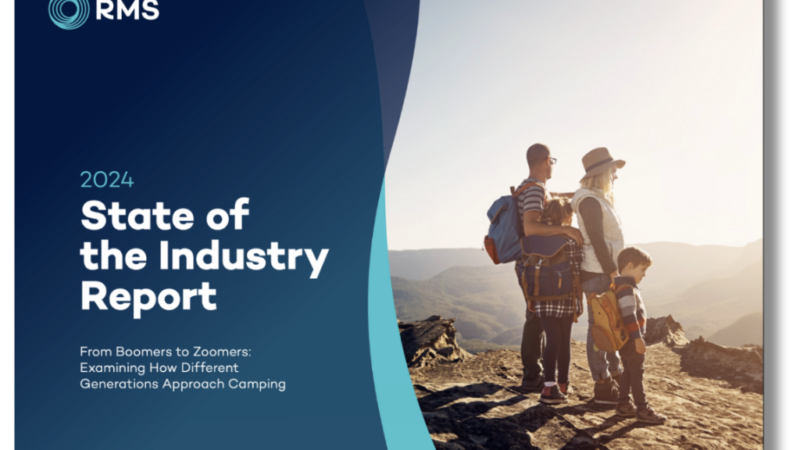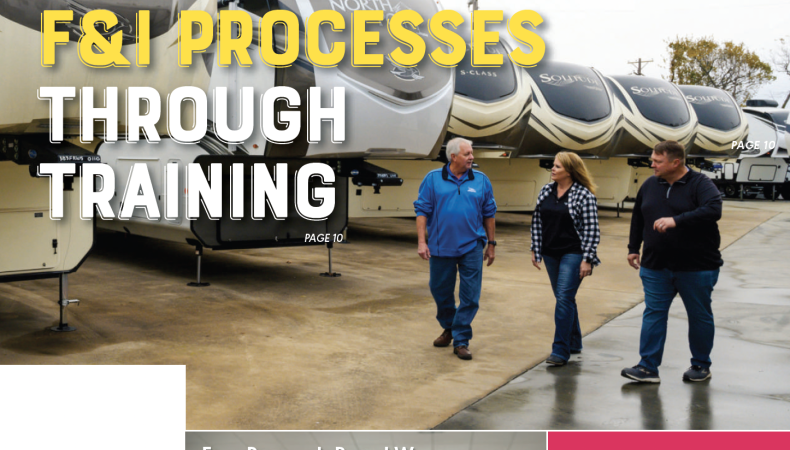Lemonis: ‘The Viability of Our Industry Has Never Been Better’
![]()
LINCOLNSHIRE, Ill. – Perhaps no commercial trend has consistently impacted the RV marketplace in recent years more than the ongoing consolidation of retail RV dealerships and the emergence of a wide array of independent dealer groups of various shapes and sizes.
And while today’s unpredictable economy may well have slowed the pace of consolidation for some of those aggressive retailers, dealer groups are generally continuing to emerge as a result of both acquisition and greenfield expansion projects.

Marcus Lemonis
That’s certainly the consensus of a number of major players within the dealer ranks based on recent public statements from the likes of 106-store Blue Compass RV and 37-outlet Campers Inn RV as well as market leader Camping World Holdings Inc. (CWHI), a publicly held firm headquartered in Lincolnshire, Ill., that has been aggressively expanding its reach in the U.S. market lately while cultivating a dealer network that, at last count, was exceeding 193 stores.
“The dealership acquisition landscape remains more robust than I have ever seen,” Marcus Lemonis, chairman and CEO of CWHI, told RVBusiness. “And we believe we can materially grow our business over the next five years, targeting a 50% increase in our store count.”
That’s the kind of ambitious approach for which Lemonis, who drew national attention in recent years as host of CNBC’s “The Profit” TV show, is well known. And it’s certainly consistent with the recent headlines that Camping World has generated with the acquisition of Roy Robinson RV Center in suburban Seattle and Carbon Emery North Lot in Carbon County, Utah, as well as the opening of a new outlet in Branson, Mo., and today’s (6/7) announcement that it’s set to acquire Hitch RV with locations in Delaware, Pennsylvania and New Jersey.
All things considered, however, none of it actually represents a big change in the strategic approach for CWHI, which in May posted 1Q revenues of $1.5 billion, off 10.6%, along with record used vehicle sales, Lemonis said in a recent telephone chat, highlights of which are as follows:
RVB: So, Marcus, you’re saying that what we’re seeing lately out of Camping World is essentially consistent with its long-term market approach.
Lemonis: Well, it’s really not any different than the plan we’ve executed for the last 20 years. It’s really just a continuation. And so for some, this may feel like a new thing because they’re new to the consolidation game. But for us, this isn’t really any different. We tend to accelerate the number of acquisitions at a more rapid pace when there’s what I would call unfortunate softness in our industry.
RVB: So, you’re saying that the current state of the market, challenging as it may be, is clearly a factor in this wave of acquisitions?
Lemonis: Well, I think what’s bad for the industry is when there is a slowdown that dealers that maybe weren’t as prepared as they could have been are at risk. There’s nothing positive about the dealer footprint shrinking for anybody, not for other dealers, manufacturers or consumers.
Ultimately, it’s important that consumers have lots of choices and those choices, as you know, aren’t just sales-oriented. They’re service-oriented and you have virtually 12 million RVers on the road, and the number of service bays and service technicians needs to grow.
So, if dealers disappear from the landscape for whatever reason it may be — and when I say disappear, I mean they don’t exist anymore, not just through consolidation — that puts a lot of pressure on the health of the RV consumer. It puts a lot of pressure on the viability of our industry and it doesn’t really bode well for the long run.
RVB: It doesn’t bode well because of the pressure, you’re saying, that it exerts on the availability of professional services for consumers, right?
Lemonis: Yes, it puts pressure on the consumer. The consumer needs multiple options for sales and/or service for this industry to be healthy. When the industry is what I would say not as healthy as it could be and there’s risk that dealers don’t survive it, there’s nothing good that comes out of that — nothing good.
RVB: So, in the case of operations like Camping World, it’s a matter of moving ahead within the constraints of these current conditions with an eye on long-term growth?
Lemonis: Well, I think it’s nothing more than a continued execution of the original business plan, and so, here again, what you’re seeing out of our company (in terms of expansion) today isn’t anything new. It’s just that you’re maybe hearing about the volume of them having increased.
But if you go back and look in the last five years or so, our dealer base is up pretty significantly and it is our plan that over the next five years, the dealer base increases as well. But it’s all born on one premise: That the RV industry continues to grow.
“That’s the premise it’s built on. If we believed that the RV industry wasn’t going to continue to grow, and I don’t mean in a quarter or in a year, but over the long haul, then there would be no point in us continuing to invest our capital and growing our business. But we believe very strongly that while there may be peaks and valleys with shipments in retail, the viability of our industry, in our opinion, has never been better.
Source: https://rvbusiness.com/lemonis-the-viability-of-our-industry-has-never-been-better/






